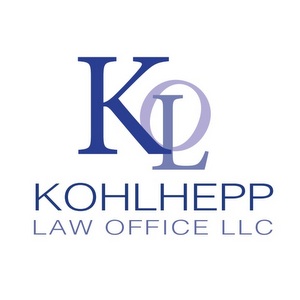 The likelihood your business will file an insurance claim is greater than you think. According to The Hartford, 40% of small businesses are likely to file a property or general liability claim in the next ten years. Unsurprisingly, theft and burglary are the most common claims filed. However, the most expensive claims are caused by situations a small business owner may not have previously contemplated. One such claim and the most expensive, is reputational harm. Be careful what you say or imply about other businesses. Don’t pick fights with your competitors to avoid these lawsuits. Many other potential claims are possible, especially if you employ drivers or have customers who visit your place of business. Automobile accidents and personal injury lawsuits are then possible.
The likelihood your business will file an insurance claim is greater than you think. According to The Hartford, 40% of small businesses are likely to file a property or general liability claim in the next ten years. Unsurprisingly, theft and burglary are the most common claims filed. However, the most expensive claims are caused by situations a small business owner may not have previously contemplated. One such claim and the most expensive, is reputational harm. Be careful what you say or imply about other businesses. Don’t pick fights with your competitors to avoid these lawsuits. Many other potential claims are possible, especially if you employ drivers or have customers who visit your place of business. Automobile accidents and personal injury lawsuits are then possible.
Make Sure Your Small Business Claim is Paid Properly
Often small business owners do not take the proper steps after damage occurs. Understandably, a business owner’s first instinct is to repair property damage as soon as possible. While it is important to take measures to ensure further damage does not occur, you should leave as much of the damaged property “as-is” for the insurance company’s inspection. Try and take pictures prior to any repair, and save all damaged material that has been replaced. Taking these steps may allow you to be reimbursed for these repairs. The more evidence you have of the damage, the better the chance of complete and full reimbursement.
Eventually the insurance company will make an offer to settle the claim. Review any settlement offer thoroughly. If you think the claim settlement offer is too low, you can appeal. If the company refuses to amend the offer, consider hiring your own outside claims adjuster. If the company does not accept the independent adjuster’s assessment, a third-party mediator may get involved to settle the claim. Taking these steps ensures that you are compensated properly. Finally, do not sign any settlement offer unless you completely understand its contents.
Be Proactive Now
Considering that four in ten businesses will file a claim within the next ten years, it is a good idea to make sure you are prepared now. First, read your policy. You may not be as covered for a future loss as you think. Even if a particular loss is covered the policy may limit recovery. Equipment may be paid at its value after depreciation, and not at replacement value. Your policy may include an aggregate deductible, meaning smaller losses not claimed will not count towards your total deductible. Also, keep good records. If your policy provides for business interruption insurance, you will need to document income generated before the loss occurred. Always review policy limits to make sure that you are adequately covered, especially if your business is growing.
How An Attorney Can Help
An attorney can help with the claims process in several ways. A lawyer can help interpret the policy to be sure all covered claims and rights under the policy are considered. Once an attorney is involved, all correspondence and negotiations can be made by the attorney directly with the insurance company. This can be very helpful especially when the loss or damage has disrupted your business. If so, it is beneficial to delegate all communications with the insurer so that you can dedicate your time to the business, not the claim. Finally, the attorney can review any insurance company forms or offers and explain the terms so that you understand the settlement completely.
A good attorney can help make sure you make and collect on your business claims correctly and legally!
Contact Brent (513-322-2061) for a Consultation
—
Kohlhepp Law Office
Kohlhepp Law strives to resolve client needs with a personal and comprehensive approach. We set ourselves apart by our commitment to responsiveness and communication. Kohlhepp Law specializes in real estate law, estate planning, business law, insurance claims, personal injury, and OVI/misdemeanor defence.
>> Learn More

